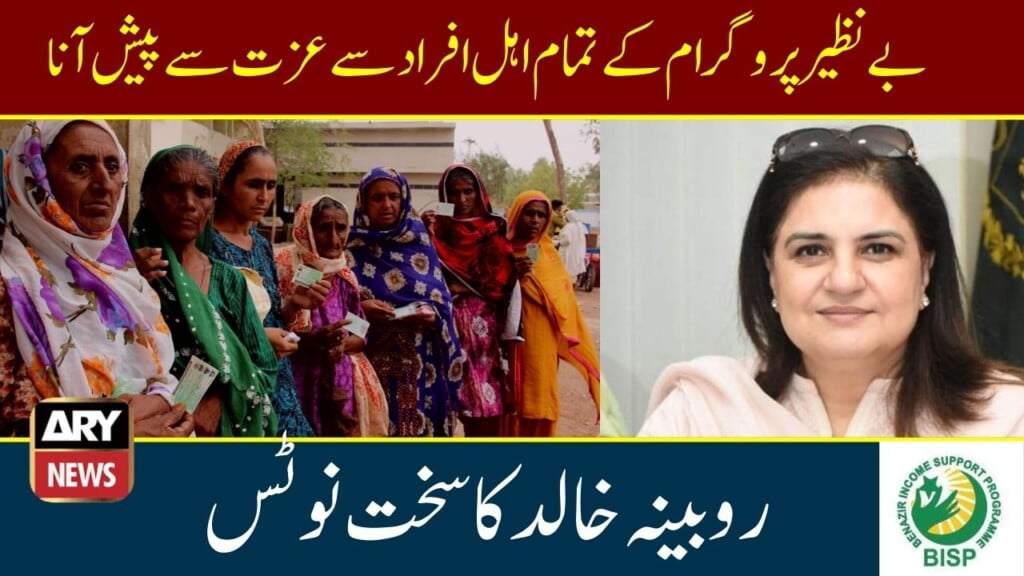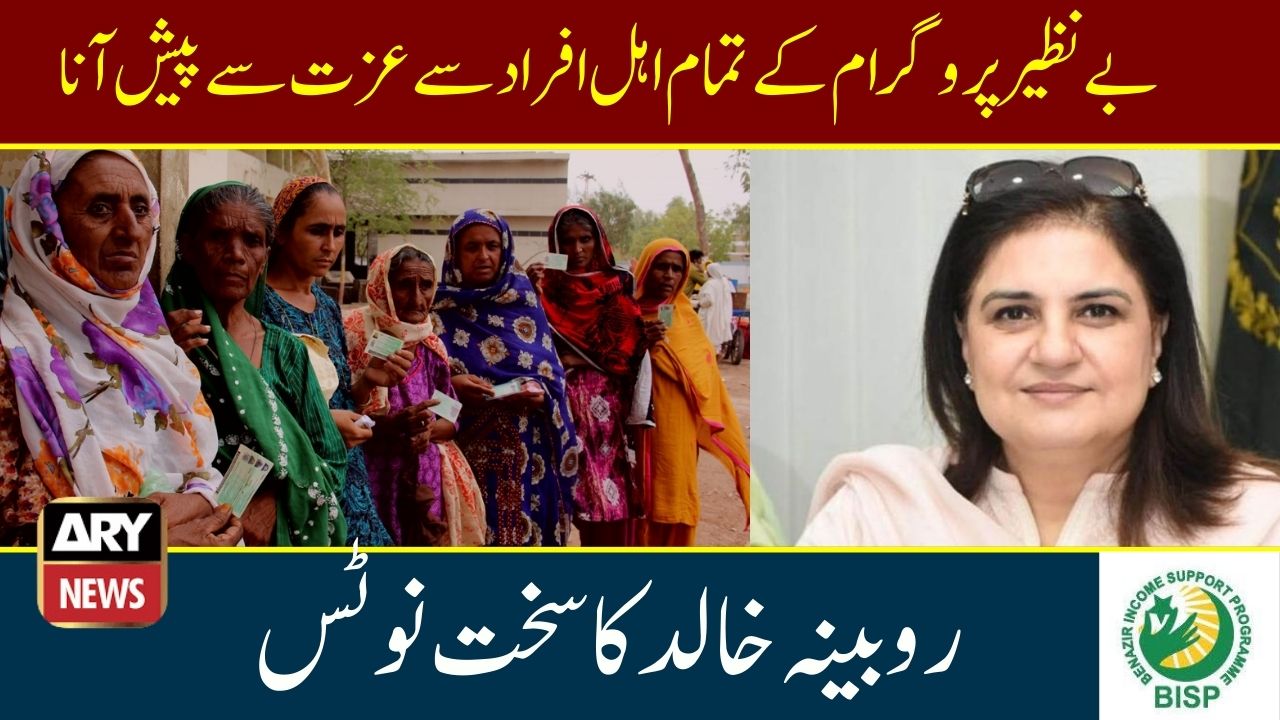The government has implemented a new policy titled “Zero Tolerance on Beneficiary Disrespect.” This policy is part of the Ehsaas Program, which aims to ensure that all beneficiaries are treated with respect and dignity. The Ehsaas Program is a social safety net effort that aims to assist the poorest and most vulnerable members of society. This policy demonstrates the government’s dedication to defending the rights and dignity of its residents. Let’s discuss the BISP Chairperson Announces Zero Tolerance for Beneficiary Disrespect 2024. Introduction to the Policy

The Zero Tolerance for Beneficiary Disrespect policy requires that all government officials and service providers treat beneficiaries with the highest respect. Any disrespect, discrimination, or harassment of recipients will not be accepted. BISP Chairperson Announces Zero Tolerance for Beneficiary Disrespect 2024.
1. Purpose of the policy:
The central goal of this policy is to make sure that Ehsaas Program beneficiaries should be treated in a conducive setting and manner. Most of time, the beneficiaries are vulnerable and coming from poor and backward settings so they should be treated with affection and respect. The purpose of this policy is to make sure that recipients are treated in a very dignified setting. They are treated in a very affable way without showing disrespect to them.
2. Process for implementation of the policy:
The process for implementation involves:
Teaching the policy to government functionaries and the service staff on how to deal with the recipients in an honorable way. Service staff were asked to behave softly with the recipients and use polite language.
- Setting a system of getting complaints about this situation. Recipients can approach it if it happens with them on this event.
- Conducting regular audit of the policy going to be implemented in these office/centers. We should ensure that it is being implemented properly.
- Keeping a very strict disciplinary action against those violating the policy.
Benefits of the Policy
The Zero Tolerance for Beneficiary Disrespect Policy comes with various merits: * It encourages the culture of respect and dignity.
- It enhances trust between the beneficiaries and the government agents.
- By using the approach, the beneficiaries feel appreciated and respected.
- The process reduces the chances of discrimination and harassment.
Challenges of Implementing the Policy
However, there are several challenges that may be experienced while using the method to address the above issues:
Ensuring all the government agents and the service providers receive adequate training. * Formulating an effective mechanism enabling the beneficiaries to easily reach the complaint will arise. * Ensuring the process of disciplining is swift and fair.
Overcoming the resistance by the authorities when changing their behavior.
Role of the Government
The government will play a major role in enhancing the success of this approach.
Zero tolerance for beneficiary disrespect should be implemented, that is, ensure that all Ehasas Program beneficiaries get the respect that they deserve from the service providers. The government should take several steps to ensure that this policy, that is, The Zero Tolerance for Beneficiary Disrespect Policy is complied with. Some of the steps that can be taken by the government to ensure that the concerned policy is put into effect include the following:
The government should conduct training and offer resources to the government officials and the service providers
- Create a comprehensive complaints mechanism and make it available to all beneficiaries
- The government should conduct regular audits and reviews to make sure that the policy is being complied with
- Take prompt and fair actions against the official who may contravene the policy.
In conclusion, the Zero Tolerance for Beneficiary Disrespect Policy is essential since it ensures that the concerned institution gives the Ehsaas Program beneficiaries the respect that they deserve. The government will have done a great job by putting the policy into action in the sense that it will have sent a stern warning to all the service providers and the government officials that disrespect and biasedness will not be accepted. Not only do the concerned policy benefit the beneficiaries of the program, but it puts the society on the path to attaining positive and courteous development.
Benefits of the Policy
The Zero Tolerance for Beneficiary Disrespect Policy comes with various merits: * It encourages the culture of respect and dignity.
- * It enhances trust between the beneficiaries and the government agents.
- * By using the approach, the beneficiaries feel appreciated and respected.
- * The process reduces the chances of discrimination and harassment.
Challenges of Implementing the Policy
However, there are several challenges that may be experienced while using the method to address the above issues:
Ensuring all the government agents and the service providers receive adequate training. * Formulating an effective mechanism enabling the beneficiaries to easily reach the complaint will arise. * Ensuring the process of disciplining is swift and fair.
Overcoming the resistance by the authorities when changing their behavior.
Role of the Government
The government will play a major role in enhancing the success of this approach.
FAQs
What is the main goal of the Zero Tolerance on Beneficiary Disrespect policy in 2024?
The main goal of this policy is to ensure that all beneficiaries of the Ehsaas Program are treated with respect and dignity. This policy aims to create a more inclusive and respectful environment for all beneficiaries.
How can beneficiaries report instances of disrespect in 2024?
Beneficiaries can report instances of disrespect through the complaint system set up by the government. This system is designed to be easily accessible to all beneficiaries, ensuring that their complaints are heard and addressed promptly.
What actions will be taken against officials who violate this policy in 2024?
Officials who violate the Zero Tolerance on Beneficiary Disrespect policy will face strict disciplinary actions.



